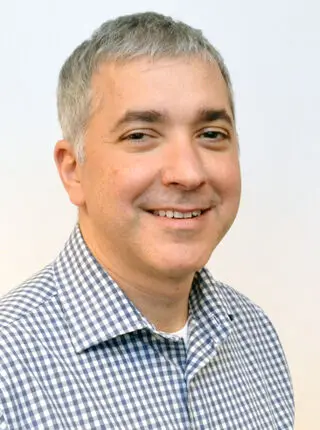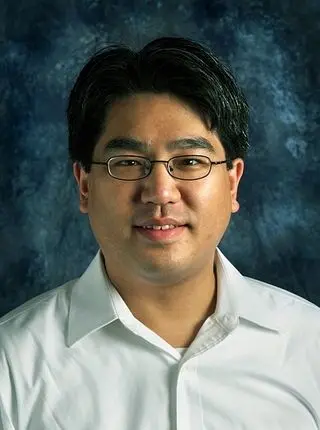Leadership
-
Read More about David A. Wolk, MD
David A. Wolk, MD
Director
David A. Wolk, MD
Director
Dr. David Wolk is Professor of Neurology, Chief of the Division of Cognitive Neurology, Director of the National Institute of Aging funded Penn Alzheimer’s Disease Research Center, Co-Director of the Penn Institute on Aging, and Co-Director of the Penn Memory Center.
Dr. Wolk’s primary clinical interest has been in the diagnosis and care of individuals with a variety of neurodegenerative conditions. His research has focused on the cognitive neuroscience of memory decline associated with aging and Alzheimer’s Disease using techniques including behavioral testing, structural and functional MRI, and FDG and molecular PET imaging. Much of this work is also directed at examining biomarkers, including behavioral and neuroimaging, that differentiate healthy aging from the earliest transition to AD and their potential role in understanding disease mechanisms and incorporation into treatment trials. Another related thread of his work has been to better understand, classify and predict sources of heterogeneity in AD. Dr. Wolk has had sustained NIH support since 2003 and has been the principal or co-investigator on numerous local, national and international studies, including therapeutic trials.
Dr. Wolk completed his medical training at Johns Hopkins University, a Neurology residency at the University of Pennsylvania, and clinical Fellowship training in Cognitive and Behavioral Neurology at Brigham and Women’s Hospital/Harvard Medical School; where he also completed a post-doctoral research fellowship studying memory in Alzheimer’s Disease. Amongst a number of honors, he is the recipient of the American Academy of Neurology’s Norman Geschwind Prize in Behavioral Neurology.
-
Read More about Jason Karlawish, MD
Jason Karlawish, MD
Associate Director
Jason Karlawish, MD
Associate Director
Dr. Jason Karlawish is a Professor of Medicine, Medical Ethics and Health Policy at the University of Pennsylvania Perelman School of Medicine and is board-certified in geriatric medicine.
Dr. Karlawish is a Senior Fellow of the Leonard Davis Institute of Health Economics, a fellow of the University of Pennsylvania’s Institute on Aging, Director of the Penn Neurodegenerative Disease Ethics and Policy Program, associate director of the Clinical Core and co-associate director of the Alzheimer’s Disease Research Center, and acting co-director of the Penn Memory Center. In addition, he directs the Penn Prevention Research Center’s Healthy Brain Research Center, a member of the CDC supported Healthy BRAIN Network dedicated to surveillance, education, awareness and empowerment that promotes brain health.
Dr. Karlawish is the project leader of makingsenseofalzheimers.org, a creative space for understanding the past, present and future of Alzheimer’s disease. Produced by the Penn Neurodegenerative Disease Ethics and Policy program and the Outreach, Recruitment and Education Core of the Alzheimer’s Disease Center at the University of Pennsylvania; and made possible by a startup grant from MetLife Foundation, the website launched in September 2014. Making Sense of Alzheimer’s is an evolving forum for conversation about the disease. Its collection of ideas captures the many dimensions of Alzheimer’s, through the perspective of caregivers, patients, artists, researchers and clinicians. Utilizing multi-media formats such as slideshows, video, and audio clips, along with written stories, the site explores the changing understanding of what Alzheimer’s is and how it affects our ethics and ideas of personhood.
Dr. Karlawish’s research focuses on neuroethics and policy. He has investigated issues in dementia drug development, informed consent, quality of life, research and treatment decision-making, and voting by persons with dementia. To learn more about his research and scholarship, visit www.jasonkarlawish.com.
-
Read More about Edward B. Lee, MD, PhD
Edward B. Lee, MD, PhD
Associate Director
Edward B. Lee, MD, PhD
Associate Director
Dr. Lee received his medical degree and doctoral degree in Neuroscience from Penn, followed by clinical training in Anatomic Pathology and Neuropathology from the Hospital of the University of Pennsylvania. He is an Associate Professor of Pathology and Laboratory Medicine and a practicing neuropathologist in the Division of Neuropathology, as well as co-leader of the U19 Center for Alpha-Synuclein Strains neuropathology core.
His research involves using of advanced molecular, biochemical and histologic techniques to analyze brain tissue in study the molecular pathways associated with neuropathologic inclusions in frontotemporal lobar degeneration, amyotrophic lateral sclerosis, Alzheimer's disease, and Trauma-Related Neurodegeneration.
His goals include maintaining a world-class experimental neuropathology laboratory and supporting lab members in our collective mission to increase our understanding of the causes and cures of aging-related neurodegenerative diseases.




